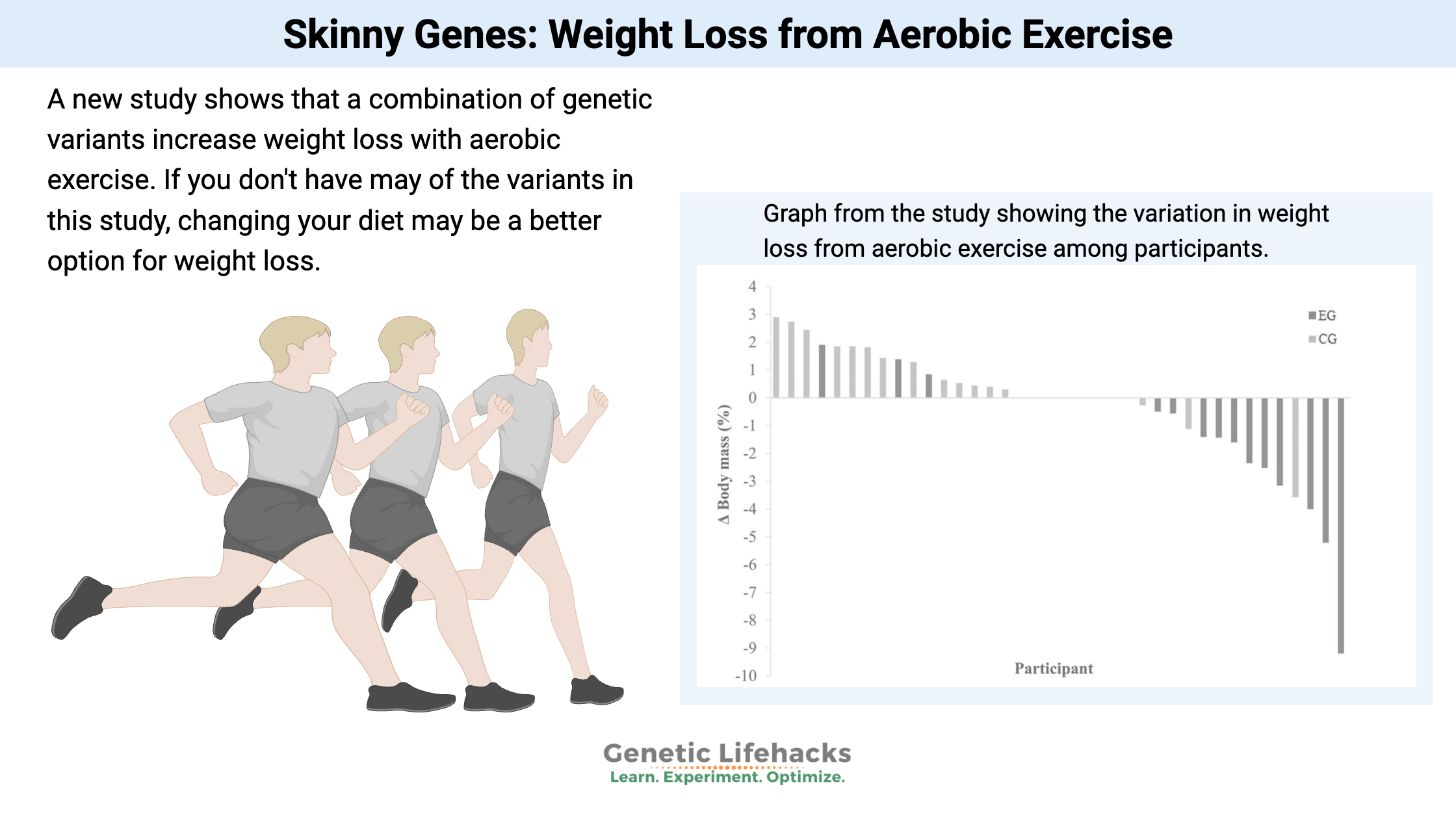Have you ever thought, “If I just exercised a little more, I could lose that extra 20 pounds!”
A new study published in September 2024 looked at the relationship between weight loss, aerobic exercise, and genetics. It attempts to answer the question, “Who loses weight and why?
Losers and gainers:
Studies of exercise for weight loss show mixed results. For some people, exercise is a great way to lose weight, but for others, it doesn’t seem to have much of an effect. When you look at the results of studies on exercise and weight loss, most show a modest positive benefit. But what is hidden in these results is that some people lose a lot of weight with exercise, and others gain a little. The average weight of all study participants usually shows a decrease, but genetic variants probably play a role in who loses a lot of weight compared to the few who gain a little.
Previous studies show that aerobic exercise usually produces modest weight loss, on average for the group of participants. Here are a couple of examples:
- A study of one hour of aerobic exercise 3-5 days/week showed an average weight loss of just 1 kg compared to a control group after 12 weeks.[ref]
- Another study involving women in a 12-week aerobic exercise program broke the results down by who lost and who gained, rather than just showing the group average. The study found that about three-quarters of the participants lost weight, while one-quarter of the group gained a little.[ref]
Access this content:
An active subscription is required to access this content.
Related articles:

